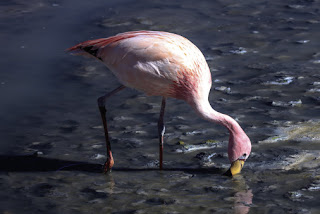Flamingos are eternal favourites of visitors in zoos everywhere and have been held in captivity for centuries. Surprisingly, it still isn't all that easy to breed them successfully, and only a few zoos have succeeded on that front. A recent review of reproductive success or lack thereof using the ZIMS (Zoological Information Management System) database of life history information gathered in zoos around the world has led to new recommendations. More generally, the findings highlight the issue that, if zoos are to act as a refuge for endangered species, we have to make sure we understand their life histories well enough. Other recent zoo stories covered include the longevity of parrots, cancer risks in mammals, and rewilding of sea otters.
If you always wondered how to breed flamingos (or how to rewild sea otters), here are some answers:
Learning lessons at the zoo
Current Biology Volume 33, Issue 4, 27. February 2023, Pages R123-R126
FREE access to full text and PDF download
See also my Mastodon thread where I highlighted all CB features of 2023.
I'm not on Instagram myself, but I believe if you follow CurrentBiology there, you'll find my features highlighted there as well.
Flamingos use their characteristically bent beaks upside down for filter feeding on plankton. This is a P. jamesi in Bolivia. (Photo: Murray Foubister/Flickr (CC BY-SA 2.0).)
PS 6.3.2023 Speaking of zoos, here's the director of London Zoo on their new offer of £ 3 tickets for ppl on benefits. (I was a bit shocked that the regular price is 10 times more, but then again I haven't been at a zoo in decades.)
















No comments:
Post a Comment